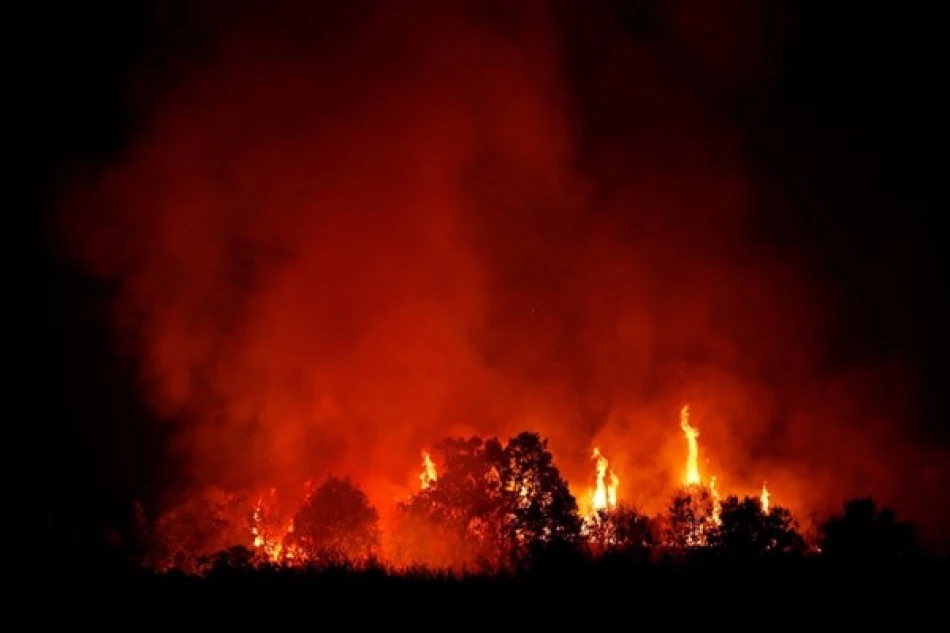
Spain Battles 14 Wildfires, Seeks EU Assistance to Contain Blazes
Spain Requests EU Emergency Aid as 14 Major Wildfires Force Mass Evacuations
Spain has formally requested European Union emergency assistance to combat devastating wildfires that have forced nearly 6,000 residents to evacuate from 26 villages, highlighting the growing strain on national firefighting resources as climate-driven disasters intensify across southern Europe.
Emergency Response Overwhelmed
Interior Minister Fernando Grande-Marlaska announced Wednesday evening that Madrid had submitted an official request to activate the EU's Civil Protection Mechanism, specifically asking for two specialized firefighting aircraft to support overstretched domestic crews battling 14 major blazes concentrated primarily in northern Spain.
The request signals that Spain's robust national firefighting infrastructure—among Europe's most experienced given the country's frequent fire seasons—has reached capacity limits. Spanish authorities typically handle hundreds of wildfires annually with domestic resources, making international assistance requests relatively rare and significant.
Escalating European Fire Crisis
Spain's appeal comes as southern Europe faces an increasingly severe wildfire season, with Portugal, France, and Greece also reporting elevated fire activity. The EU's Civil Protection Mechanism, established in 2001 and strengthened following major disasters, maintains a reserve fleet of firefighting aircraft specifically for such cross-border emergencies.
Resource Strain Across the Continent
The simultaneous pressure on multiple European nations' firefighting capabilities reflects broader trends climatologists have warned about for years. Higher temperatures, prolonged drought conditions, and shifting precipitation patterns are creating longer, more intense fire seasons that stretch traditional response capabilities.
Unlike previous decades when major fires typically occurred in isolated regions, current patterns show multiple countries facing peak fire conditions simultaneously, reducing the availability of mutual aid resources that European nations have historically shared.
Economic and Strategic Implications
The mass evacuations and resource requests carry significant economic implications beyond immediate firefighting costs. Spain's tourism sector, which accounts for approximately 12% of GDP, faces potential disruption during peak summer season. Agricultural regions in northern Spain, including valuable forestry areas, represent billions in economic value at risk.
From a policy perspective, the crisis reinforces arguments for expanded EU-level disaster preparedness funding. The European Commission has proposed increasing the bloc's firefighting aircraft fleet and establishing permanent rapid-response teams, initiatives that gain political momentum during high-profile emergency situations like Spain's current crisis.
Looking Ahead: Adaptation Challenges
Spain's request underscores the urgent need for European nations to recalibrate their emergency response strategies for a climate-altered reality. Traditional firefighting approaches, designed for historical fire patterns, may prove insufficient as extreme weather events become more frequent and severe.
The coming weeks will test whether EU coordination mechanisms can effectively respond to multi-country disasters, potentially shaping future discussions about shared European disaster response capabilities and climate adaptation investments.
Most Viewed News

 Layla Al Mansoori
Layla Al Mansoori






